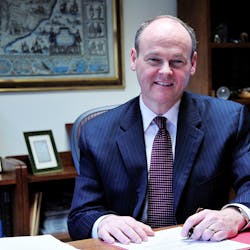Developments in Bahá'í Administration: 100th Anniversary of the National Spiritual Assembly of the United States and Canada
- Details
- Resources
This panel, marking the 100th anniversary of the National Spiritual Assembly of the Bahá’ís of the United States and Canada, examines the evolution of Bahá'í administration and governance. The session will reflect on the historical development of the Bahá’í Faith in North America, focusing on early efforts to establish the first Bahá'í Temple in the Western world, the challenges of gender and racial equality, and the formation of the joint NSA before it evolved into two distinct bodies for the U.S. and Canada. Panellists will explore the evolution of the Bahá'í administrative system, the strengthening of its distinguishing features of consultation, equality and unity, and how it operates today as a model of systematic learning, standing in stark contrast to systems of governance prevalent in wider society. The session will consider how insights from the Bahá'í administrative experience, both in the U.S. and Canada, can advance contributions to academic and professional discourses.
Kenneth Bowers
Kenneth E. Bowers currently serves as Secretary of the National Spiritual Assembly of the Bahá’ís of the United States. Prior to being elected to the National Assembly, he served as an appointed member of the National Teaching Committee, the principal arm of the National Assembly, acting as its Secretary for nearly 10 years. Until 1991, Mr. Bowers owned and operated a business in Atlanta. He is the author of *God Speaks Again*, an introductory book about the Bahá’í Faith. Ken and his wife, Mojgan, make their home in Wilmette, Illinois, in the northern suburbs of Chicago.

Kathryn Jewett Hogenson
No biography available.
Michael Karlberg
Michael Karlberg is a professor of Communication Studies at Western Washington University. His scholarship interrogates the intellectual foundations of Western civilization, including conceptions of human nature, power, social organization, and social change. His first book, Beyond the Culture of Contest, examines the socially unjust and ecologically ruinous consequences of organizing dominant social institutions and practices in a competitive manner. His new book, Constructing Social Reality builds on that work by examining the relativism, cynicism, and materialism the culture of contest gives rise to, and how this undermines struggles to construct more peaceful and just social forms. His current research is examining theories of social change, and their translation into movement practice, with a specific focus on how the relationship between ends and means is conceptualized and enacted.

Saphira Rameshfar
No biography available.
49th annual conference
The views expressed in this recording are those of the presenters and do not necessarily represent the views of the Association for Bahá’í Studies, nor the authoritative explications of Bahá’í writings.